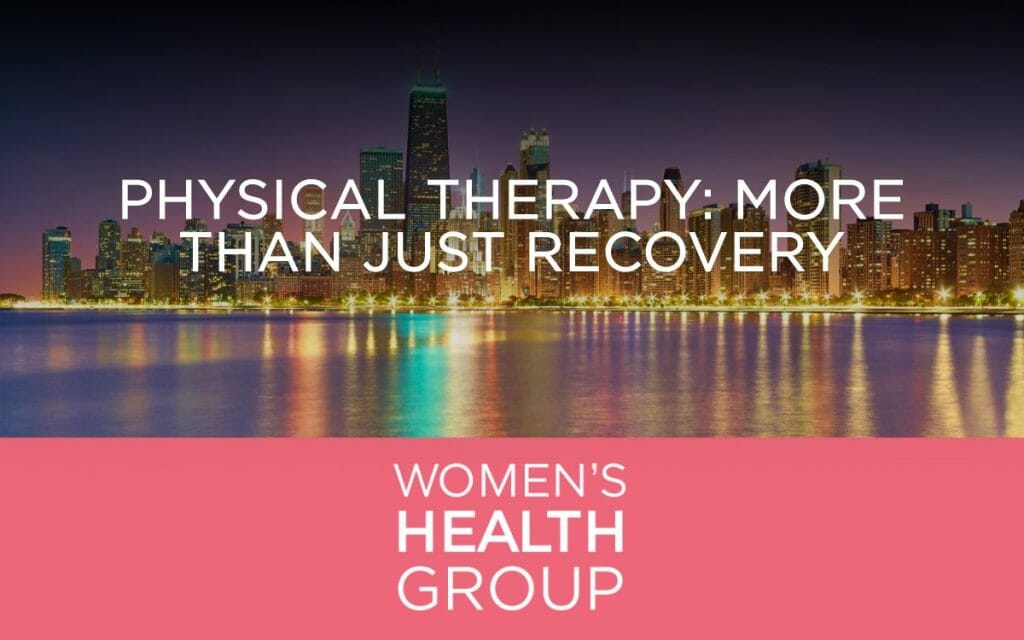Physical Therapy: Not Just for Recovery
As a Women’s Health Group Obstetrician-gynecologist group in Chicago, we often get asked about the different treatment options available to our patients. Among various treatment techniques, one that often stands out for its versatility and effectiveness is physical therapy. This treatment approach provides exceptional relief and healing to patients of all ages and medical conditions. But did you know that physical therapy offers incredulous benefits beyond just recovery from illnesses and injuries?
Defining Physical Therapy
Physical therapy, often contracted as PT, is a popular treatment technique in the field of healthcare. It concentrates on improving a person’s capability to perform the routine tasks of their daily lives. This often involves improving mobility, strength, flexibility, and overall fitness and wellness. While it is well-known for aiding recovery from injuries, it benefits extend far beyond this aspect.
Physical Therapy and Women’s Health
For women, physical therapy provides a specialized approach to managing and preventing health issues. Some conditions our practice often recommends physical therapy for include pelvic pain, post-surgical recovery, incontinence, and even during pregnancy and post-partum period. But why is physical therapy incredibly useful for these conditions?
The Extensive Physical Therapy Benefits
The crux of physical therapy’s vast appeal lies in its remarkable benefits. Looking into these benefits would help us comprehend its relevance and contribution to the healthcare landscape.
– Pain Management: Physical therapy often includes exercises specifically designed to target painful areas and reduce discomfort. This can be better than managing pain through medications alone and can help avoid the side effects of such a drug-based approach.
– Injury and Surgery Recovery: Skilled physical therapists design therapeutic exercises and manual therapy techniques to help patients recover from surgeries and injuries, often speeding up the recovery process.
– Strengthening and Conditioning: PT exercises can help build strength in weakened muscles and improve overall fitness levels. This can help patients regain lost functionality and lead an active life.
– Pregnancy and Post-Partum Care: Physical therapy can help with common issues women face during and post-pregnancy. For instance, it can provide relief from back pain, manage pelvic discomfort, and prepare the body for childbirth. Post-partum, it can assist in regaining core strength and managing any residual aches and pains.
Physical Therapy: A Lifetime Wellness Solution
Physical therapy can be strategically mapped onto a patient’s lifetime wellness strategy as a preventive measure rather than just a recovery tool. With techniques such as resistance training, mobility exercises, and body conditioning, physical therapy extends much further than just rehabilitative care. It may help in the overall enhancement of body functionality and vitality. This is particularly important for women, as many tend to ignore their health while juggling multiple roles.
Embracing Physical Therapy
The value of physical therapy in the healthcare field is immeasurable. As we uncover the broader landscape of physical therapy benefits, it becomes evident that this therapy technique can be an indispensable part of our healthcare system.
For more information on physical therapy and its benefits, here are some excellent resources:
Explore specifics about Physical Therapy Benefits on the Mayo Clinic’s website.
On the US Department of Health and Human Services’ women’s health website, you can learn more about Physical Therapy Benefits.
Final Thoughts
In conclusion, it is essential to state that physical therapy is not a one-size-fits-all solution. Instead, it is a therapeutic technique that can be customized to meet individual health needs, particularly for women at different stages of their lives. Whether you’re recovering from injury, preparing for childbirth, or aiming for overall wellness, physical therapy can play an integral role in your healthcare. It is so much more than just recovery; it’s about enhancing your quality of life.




